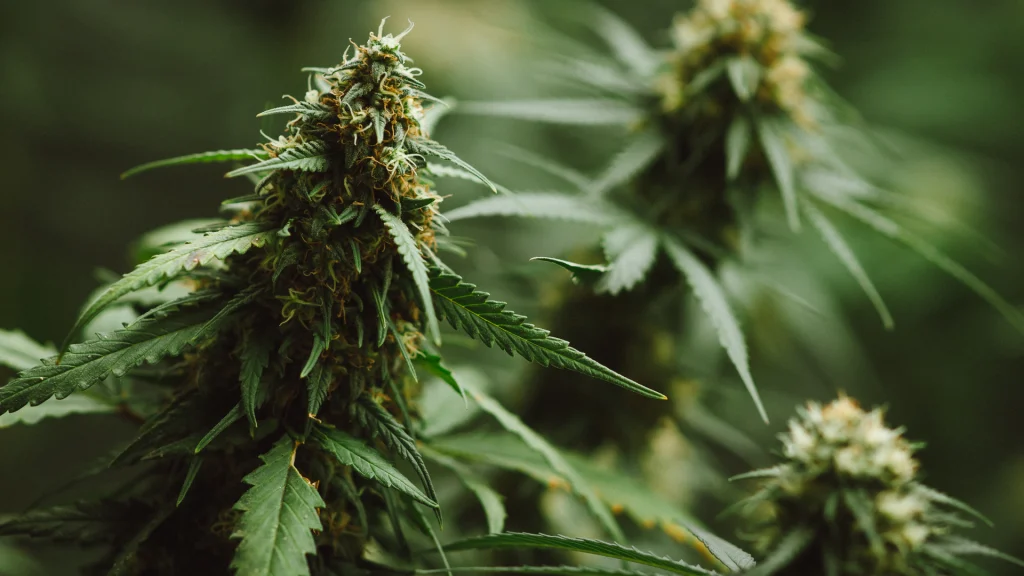Analyzing The Benefits Of Marijuana Use For Cancer Patients
Marijuana is an ancient plant that goes by many names, from cannabis to weed and pot. The drug has soared in popularity in recent years, but what is it about?
Marijuana refers to the cannabis plant but also the plant’s dried leaves and buds. Cannabis has always been around and has been cultivated for thousands of years for various reasons. However, it is well-documented for its medicinal properties.
In the United States, cannabis is illegal under federal law, but many states have legalized the drug for medicinal purposes and some even recreationally.
The primary reason behind the recent wave of marijuana legalization and its popularity in America and worldwide is its medicinal potential.
Researchers have discovered compounds in the cannabis plant with the potential to treat and relieve many health issues. One of the illnesses that may benefit from marijuana is cancer.
The Connection Between Marijuana and Cancer
Marijuana has a group of compounds known as cannabinoids. Some studies have found that these chemicals may help relieve cancer symptoms and even slow down the growth of cancerous cells.
Cannabinoids bind to cannabinoid receptors present in your body. These receptors are part of an internal system known as the endocannabinoid system (ECS), which regulates vital functions in the body.
Much of the medicinal benefits of cannabinoids are a result of the deep interaction between cannabinoids and the ECS.
While a lot is still unknown, the discovery links two of the most active cannabinoids with relief from certain cancer symptoms. These are cannabidiol (CBD) and delta-9-tetrahydrocannabinol (THC).
Cannabidiol (CBD)
Cannabidiol is one of the most studied compounds in the cannabis plant and has the highest therapeutic potential. It is found in higher concentrations in indica varieties than in sativa.
Unlike its sister cannabinoid, THC, CBD doesn’t have the mind-altering effects users refer to as getting high. In fact, the compound doesn’t depend on this high effect to numb the mind and provide relief.
Delta-9-tetrahydrocannabinol (THC)
Tetrahydrocannabinol, generally known as THC, is the other prominent compound in marijuana. What makes it different from CBD is the psychoactive component since THC holds most of the psychoactive aspect of the plant.
Like CBD, plant varieties determine THC concentration. For instance, sativa plants are known to contain more THC than CBD.
How Can Marijuana Benefit Cancer Patients?
Both CBD and THC can assist in cancer treatment. They have properties that may relieve specific symptoms.
However, research shows that the most benefit comes from combining all chemical components of the marijuana plant, from cannabinoids to terpenes and flavonoids.
Studies have shown that broadspectrum marijuana (meaning whole plant rather than select compounds) results in the entourage effect that enhances its medicinal properties
Here are the benefits of marijuana for cancer patients:
-
Nausea and Vomiting
Nausea and vomiting are common for cancer patients undergoing chemotherapy. The experience occurs due to the stimulation of certain sensory centers in the brain and digestive tract.
While researchers aren’t entirely sure how chemo triggers nausea and vomiting, it appears that the drugs, among other factors, stimulate the sensory centers responsible for the symptom.
Chemotherapy agents such as cisplatin are known to cause vomiting in most patients. Some, like methotrexate, aren’t quite as bad, but they still cause vomiting in some patients.
While antiemetic drugs like Compazine are commonly administered to relieve nausea and vomiting, they are not always effective. As such, a few small studies have presented marijuana as a good alternative to traditional antiemetic medications.
Through studying cannabinoids, researchers have come up with drugs like nabilone and dronabinol derived from synthetic cannabinoids. The FDA has approved these drugs for treating nausea and vomiting caused by chemotherapy.
-
Cancer-Induced Malnutrition
Loss of appetite is common in cancer patients, contributing to a condition called cachexia, characterized by loss of lean body tissue. Cachexia is more prevalent during the final stages of certain cancers, but it’s still a common issue affecting up to 80% of cancer patients.
The loss of appetite and wasting away caused by cancer are generally a result of the immune system response. However, loss of appetite and not cachexia can be induced by medications.
Marijuana has proven that it can help patients fight the wasting process and stimulate appetite as it’s a strong appetite stimulant. Patients on THC-based dronabinol have shown reduced weight loss and increased appetite.
-
Cancer Pain
Cancer can be painful, but the type and severity of pain you experience depends on various factors, like the type of cancer, its location, and its stage.
There are various ways cancer causes pain. Here are three common causes:
- The tumors may release chemicals causing pain
- The tumors may press on nerves, organs, and bones
- The tumors or chemotherapy may cause peripheral neuropathy. However, chemo-induced peripheral neuropathy is more common.
The cannabinoids in marijuana, especially CBD and THC, have helped relieve cancer pain.
While the effect of marijuana varies from one person to another, and dosing is challenging, the drug is becoming more recommended as a safer alternative to opioids when it comes to long-term pain management.
-
Stress and Depression
A cancer diagnosis is a major life-changing event that triggers psychological and emotional stress in most people for various reasons. Besides the diagnosis itself, other factors like treatment options, finances, and lifestyle adjustment contribute to the distress.
About 10% of cancer patients develop depression, which has shown a negative impact on the quality of life and mortality of cancer patients.
Treatments for stress, anxiety, and depressive disorders in cancer patients vary. Generally, a combination of therapies is prescribed, and marijuana is one of them.
Marijuana has stress and anxiety-relieving properties, with some strains being more uplifting than others. Currently, mental health experts are looking into the drug as a potential treatment for depression.
Final Thoughts
Researchers are yet to find enough evidence of the medicinal potential of marijuana. Additionally, regulatory restrictions and the fact that everyone responds differently to different strains of marijuana make prescribing the drug challenging.
Still, a number of studies have found that marijuana has certain elements that may assist in treating various illnesses, including cancer.







